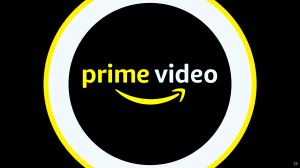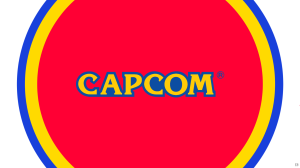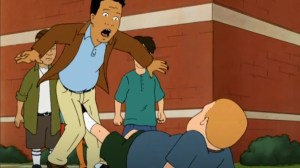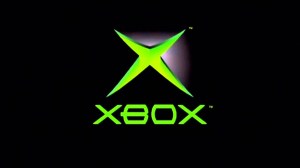Having previously delivered the independent productions Thunder Road, The Wolf of Snow Hollow, and The Beta Test, filmmaker and actor Jim Cummings knows a thing or two about bringing to life a compelling story on a limited budget, both in front of and behind the camera. With his latest film, The Last Stop in Yuma County, Cummings only had to worry about his on-screen contributions to the project, which required him to both honor the more thrilling elements of the narrative but also required him to emphasize the ways in which his character was in over his head to more fully realize writer/director Francis Galluppi’s vision. The Last Stop in Yuma County hits theaters and Digital on May 10th.
Videos by ComicBook.com
The Last Stop in Yuma County is described, “While awaiting the next fuel truck at a middle-of-nowhere Arizona rest stop, a traveling young knife salesman is thrust into a high-stakes hostage situation by the arrival of two similarly stranded bank robbers with no qualms about using cruelty-or cold, hard steel-to protect their bloodstained, ill-begotten fortune.”
ComicBook caught up with Cummings to talk preparing for the new film, the challenges of filming, and collaborating with the rest of the acting ensemble.
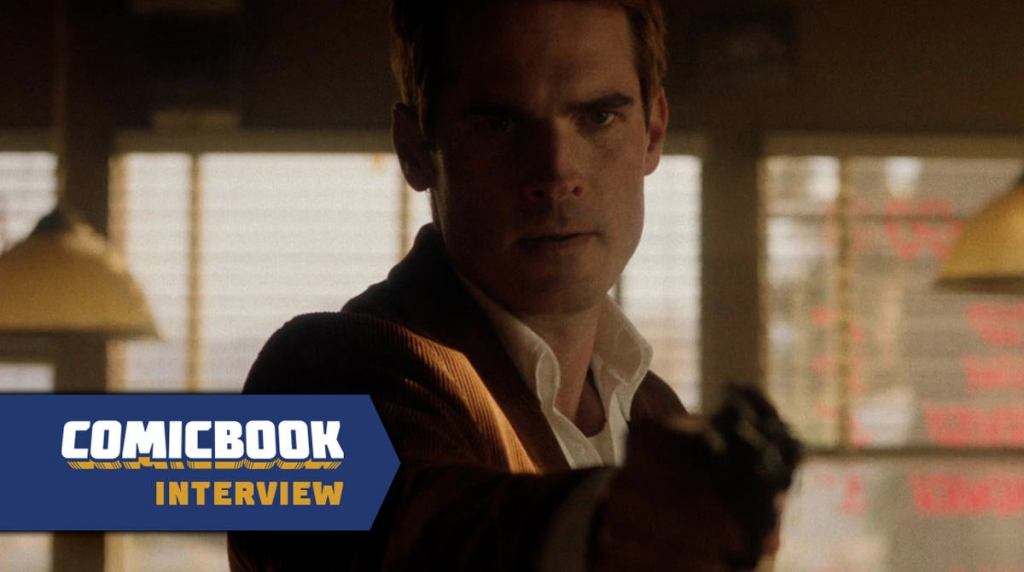
ComicBook: This is such an interesting movie in that it weaves between these different themes and tones, and sometimes it’s more drama, other times more thriller, this neo-noir story. With Francis being a first-time feature director, what was it about his vision that really excited you and really appealed to you?
Jim Cummings: He sent me the script, and I guess his buddy Scott from middle school, his best friend, heard me on a podcast saying that nobody asked me to act in anything. They’ve probably seen my movies, they have good reason why they don’t ask me to act. But Scott reached out to Francis and said, “You should ask him, he’d be very good. I think he’d be very good for this part.” So thank you, Scott Holmes. And then Francis reached out and said he wanted me to play the lead. He came over to my house and we talked about it, read the script. It felt, in reading it, it was very dry, there’s no comedy to it, you’re just reading the script and it felt like a Paul Newman/Jimmy Stewart, bag-of-money-in-the-desert movie. I was like, “Oh man, this would be so much fun. It feels like a throwback, this could be a lot of fun to do.” He came over and we just talked about South Park for four hours, and I was like, “Oh, this is going to be a great film. This guy has a great sense of humor.”
We talked about Criterion movies, we talked about the history of noirs and Westerns. I’m a cinephile. He’s a cinephile. The majority of our time together is spent just talking about the history of movies. I knew I was in good hands, and that was the reason that I signed on. I had seen his short films and even he was like, “I want to do something different. This is going to be its own thing. It’s going to be this big, fun feature. I think I’m ready to do it.” I’ve seen that a million times, doing it myself, going from short to feature. And then also we run a lab that helps filmmakers go from short to feature, and I could see this ambition in him, and that was really the thing that got me on board.
Speaking of acting and also comedy, with this being a neo-noir and a thriller, it is tense, but there are some more lighthearted, comedic moments. Your character especially, I feel like really is in a tonally interesting place.
Oh, I’m an idiot. I’m a coward in this movie.
Honestly, that’s all I was trying to say. This wasn’t even a question.
“You came across like an idiot.”
This was me trying to politely say, “By the way, you’re a coward.”
Thank you, Patrick. Thank you.
How do you find that balance? Do you find that you approach this character organically, the way that you would approach any character, whether it’s drama, horror, humor, and then you leave it up to the filmmaker to find that tone? Or do you intentionally heighten your reactions, heighten your befuddlement?
Oh, no, no. When Francis and I were talking, we talk about filmmaking as a whole, a feature film being an equation. It’s not just this amalgamation of scenes in a boxcar that gets chopped up. You’re on this roller coaster and you have to weave the audience’s attention throughout.
I always say, “If you don’t make jokes throughout your films, your audiences will.” I always grew up with very harsh critics as friends, and we would just make fun of the movies that we were watching, so much so that I would be like, “Oh, my movies need to be bulletproof so that John Silva doesn’t make fun of me.” And Francis grew up with that experience with me, so really the goal is to make something very austere, like Richard Brake’s performance that is very frightening. But then to have me be a coward watching him, the audience is laughing at this very serious thing. You have to tap many lobes of the brain at once through this storytelling.
Tone is very complicated. Bong Joon-ho does a very good job of making all of his films everything; it’s a romance, it’s a horror, it’s a noir, it’s a thriller, it’s everything. We try to do the same, to be genre-fluid, because I feel like audiences these days are media-literate enough that if you were to see this film … Just that generic, noir Western, I feel like you’d get bored. We’re trying to make movies for audiences that get the jokes so that if Faizon Love is saying the title of the movie and you cut it off halfway through, the audience is … You should have been there at Fantastic Fest, they were rolling in the aisles. It was such a risk to do that. But that tonal shift is the stuff that I love to see in the cinema anyway.
When it comes to your own career, when I think of something like Wolf of Snow Hollow, where you’re acting and you’re directing that, there’s so much more, I don’t want to say you are independently creating that movie, because the cast, the crew all contribute, but you personally have so much more invested in bringing that story to life. And with this, you have all these characters who are in the same room pretty much the entire time. So what was that collaborative effort like? Was it putting complete faith in Francis and just being one of his instruments that he was playing with?
Yeah, Francis is much better at ensemble work than anybody I’ve ever met, certainly me. When I make a movie, it’s like … Almost all three of my films, the main character’s in every scene, and that’s not the case with this. In an ensemble, you’re pairing off different people, you’re seeing how the equation works with these conversations. There’s different locations that then add to the story. It really does feel like this wild, thriller ensemble, and Francis had to navigate that constantly. He’s a big fan of Hitchcock. You see something like Rope and it’s multiple different conversations that take place in the same room, but the tension is escalating constantly, who’s in the know, who knew what, when, that stuff. This one was a pleasure to work with because I didn’t have to think about that.
Francis was so meticulous that he would measure with our production designer, Charlie Texter, how much coffee was in the pot because he was keeping track of how much Charlotte was pouring for each person, which is crazy. You’re watching the film, you’re like, “Who cares about that, it doesn’t matter at all?” But he was so forensically in the world and thinking about each of the characters and loving each of the characters in a way that I don’t. I see characters as like, “So they’ve got to say something to keep the plot moving,” in my movies. They’re much simpler, my movies. This one was like a real, can I say clusterf-ck? I can’t imagine what it must have been like to write and direct this thing and keep all of these things in the air while making this thing.
Even though we just talked about the collaboration, your role specifically, even compared to some of the other actors, you are sitting at a table by yourself for a majority of the film.
For the majority of the film. He sent me the script and I was like, “You want me to sit in a booth for three-quarters of a month? You want me to sit in a booth for three weeks? All right, great.” In the ugliest outfit possible. In the hottest outfit possible. In fact, that was the one improv that I suggested, that I ripped the jacket off at the end of the film because I could not wait to get that suit off of me after a month in the desert.
Well, no, that’s a great point. I couldn’t help but have sympathy for you as a performer of what that experience is like, is getting to watch Jocelin [Donahue] and Richard have these tense encounters and you’re just sitting there. Honestly, every day, is it like you’re doing Sudoku just to pretend to be invested? How do you not get wrapped up in these incredible performers doing this film?
Oh, constantly. And jealousy, and you get to see Nick Logan being Bugs Bunny with the gun in his ass and running around. There was so much fun, and, really, it was very easy for me, I just had to track where things were on the table with Kyle, the art director. We had to make sure continuity was perfect, but then I just had to sit and then react to some stuff, so it wasn’t that difficult for three weeks. And then things get crazy, the guns come out, and then I’m up on my feet and running.
That was shot interspersed throughout production. I was on my feet for most of it. I didn’t really feel lethargic in sitting in this booth for a long time because there was so much tension. You still have to be stressed out if Richard Brake has a gun on you. Really, Francis was like, “Hey, get up and do 50 pushups,” and he and I would do pushups against each other so that I would be sweaty in this nervous diner seat being stressed out. We still found ways to keep it tense. I don’t know if Hitchcock was doing that to Jimmy Stewart, but it was fun to have little pushup competition throughout.
You had your werewolf movie with Snow Hollow. You were in Halloween Kills, a pretty integral component of the momentum of that overall storyline. Now Francis is jumping into Evil Dead next. As a fan of films and genre films, do you have a favorite franchise of yours that you would like to dip your toes in and experiment with? Whether you’re going to be Francis’ Ash Williams or if you’d like to stay behind the camera?
I’m honored by the comparison. I really like the Alien movies. My wife Julia is a filmmaker, and we watch those the second they’re available. I think that those do a really good job of the roller coaster. I think Ridley [Scott]’s still got it, even the latest one, [Alien:] Covenant, I love more than the last two. Michael Fassbender is so good. Performance-driven horror intention is my favorite.
But no, I really love original work. I think the reason I like Alien is because it was original and the same with Francis. Francis is coming on to helm Evil Dead, but he’s perfect for it because he grew up with Evil Dead. He was born with the Necronomicon in his hands, basically. I can say that it is his favorite thing, it would be his dream project, and Sam [Raimi] and Bruce [Campbell] both agreed that he was right for the part. But I don’t know, I’m really enjoying being original, creating original content. I think there’s real creative value and personal value to that for audiences. So I’m going to do that for a minute, I think.
The Last Stop in Yuma County lands in theaters and on Digital on May 10th.
This interview has been edited for length and clarity. You can contact Patrick Cavanaugh directly on Twitter.

